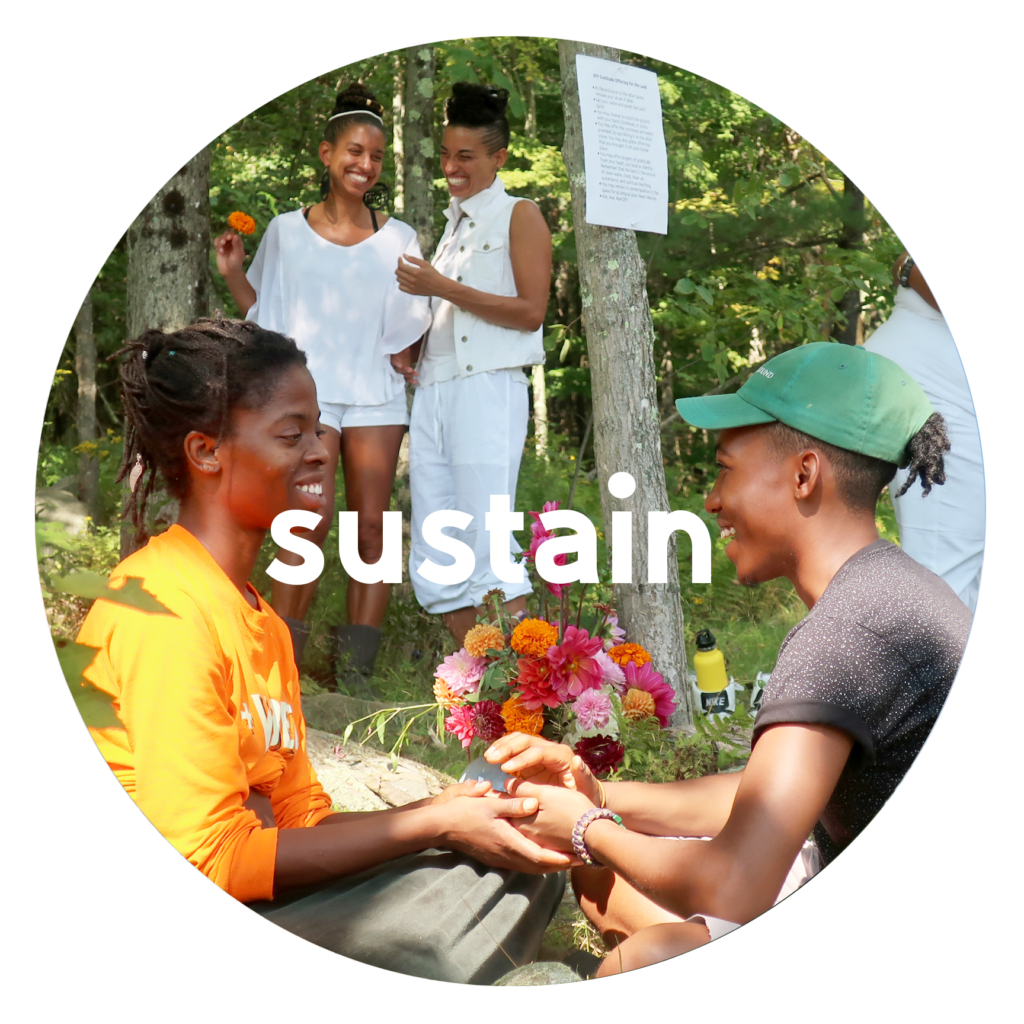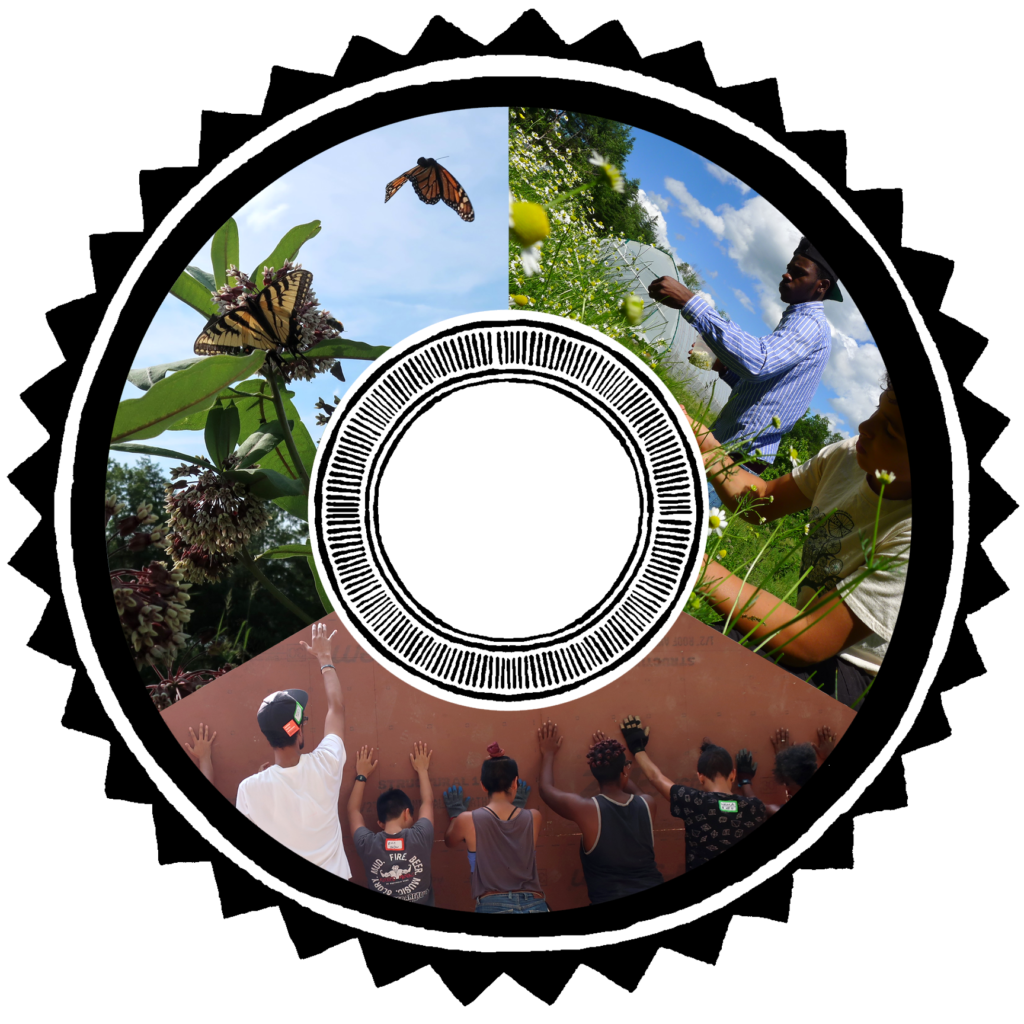
Uproot Racism in the Food System
Why We Do It
We need equity in access to land, sustenance, and power in the food system. The food system is built upon land theft and genocide of indigenous people and the exploitation of Black and Brown labor. Black farmers currently operate around 1% of the nation’s farms, having lost over 12 million acres to USDA discrimination, racist violence, and legal trickery. 85% of the people working the land in the US are Latinx migrant workers, yet only 2.5% of farms are owned and operated by Latinxs. People of color are disproportionately likely to live under food apartheid and suffer from diabetes, heart disease, and other diet related illness. Labor laws continue to permit the exploitation of farm and food workers.
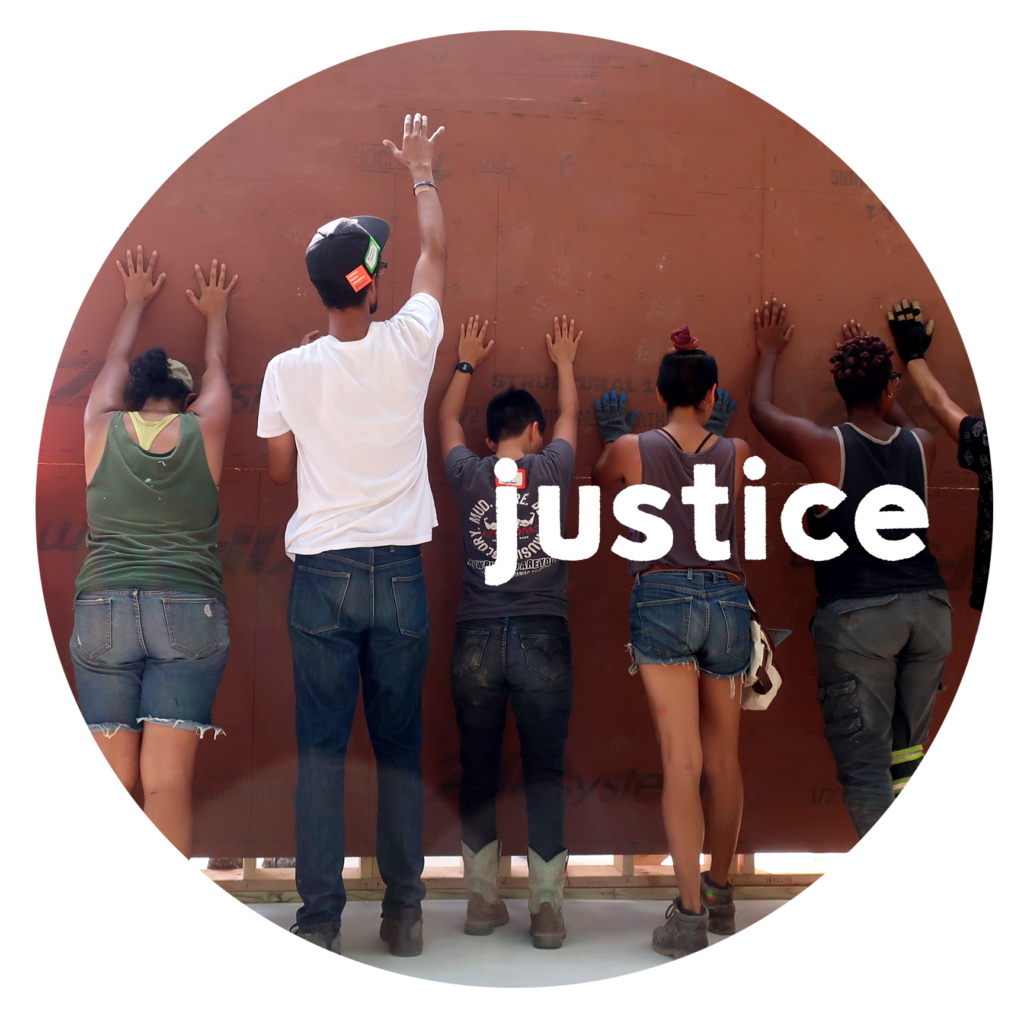
We must reverse industrial agriculture’s damage to the planet and harm to vulnerable communities. Industrial agriculture is responsible for 24% of greenhouse gas emissions, 70% of water use, and 37% of land use. Environmental impacts of climate change, pesticide exposure, and toxic pollutants harm communities of color disproportionately. Regenerative farming practices rooted in African-Indigenous wisdom and technologies are part of the solution to feeding the world without undermining its ecology, and have been ignored, erased, or appropriated by mainstream society.
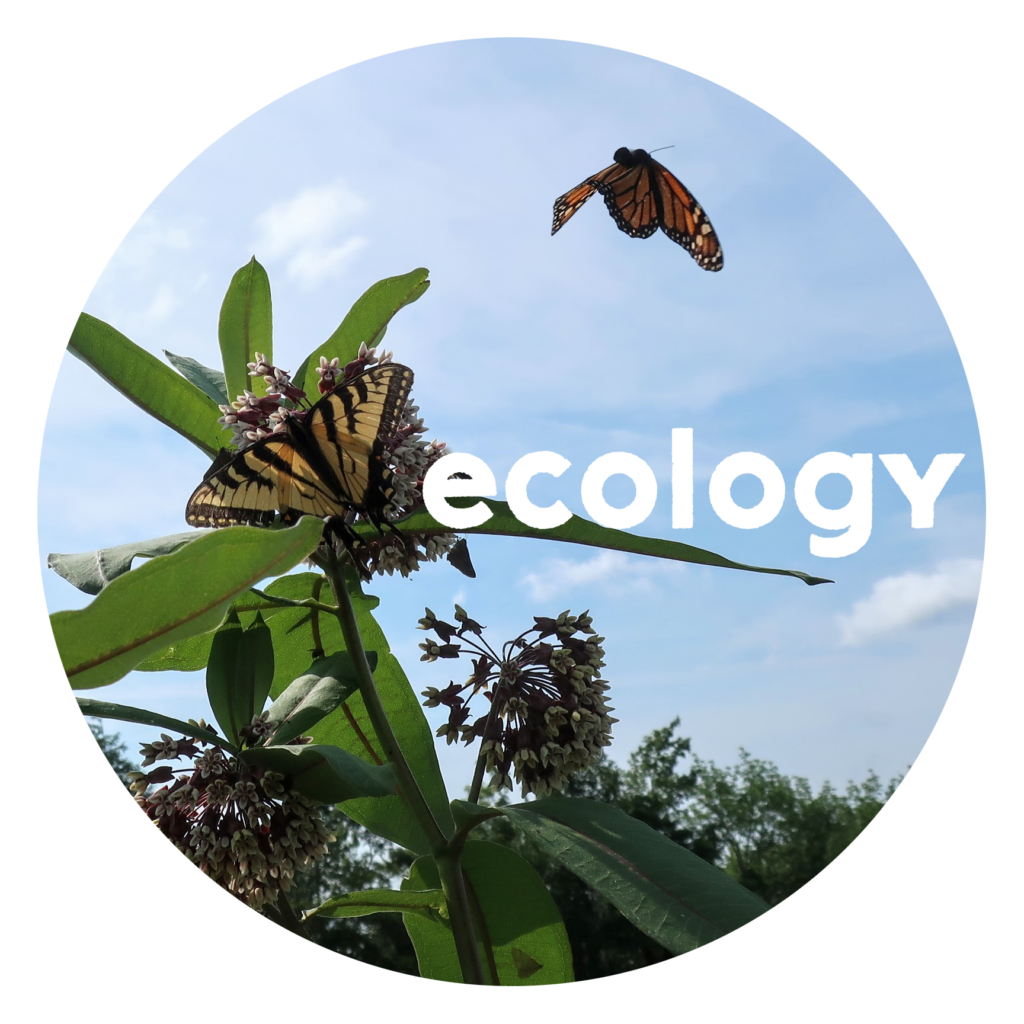
It is time to heal from a history of oppression that has disconnected our communities from land. A history of land-based oppression and forced migration have resulted in a concentration of people of color in urban environments, often devoid of the psycho-spiritual and somatic benefits of connection to the earth. “Nature deficit disorder” can lead to ADHD, anxiety, depression, poor eyesight, and lower achievement in school. Lack of access to quality food and outdoor play is putting youth at higher risk for early onset diabetes and learning challenges, and later in life, heart disease, sleep apnea, psychological challenges, stroke, and cancer.
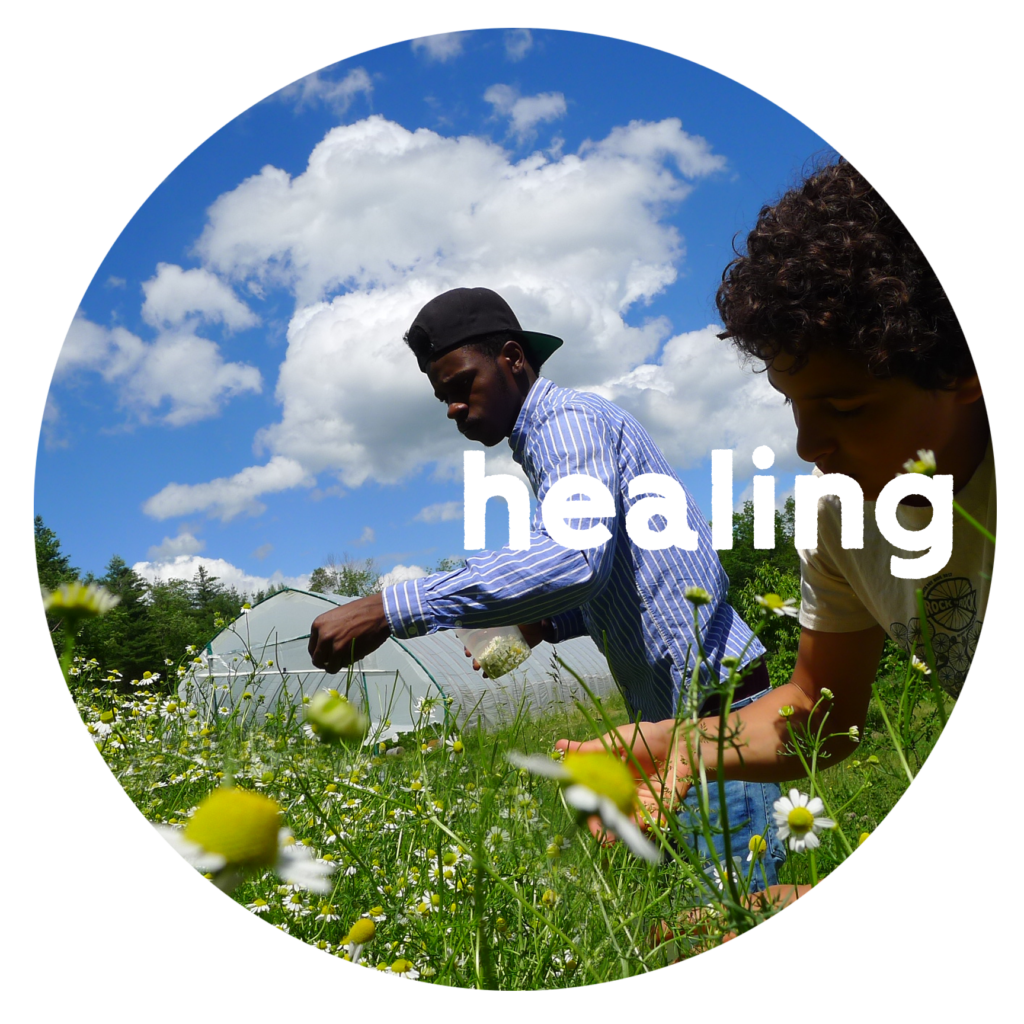
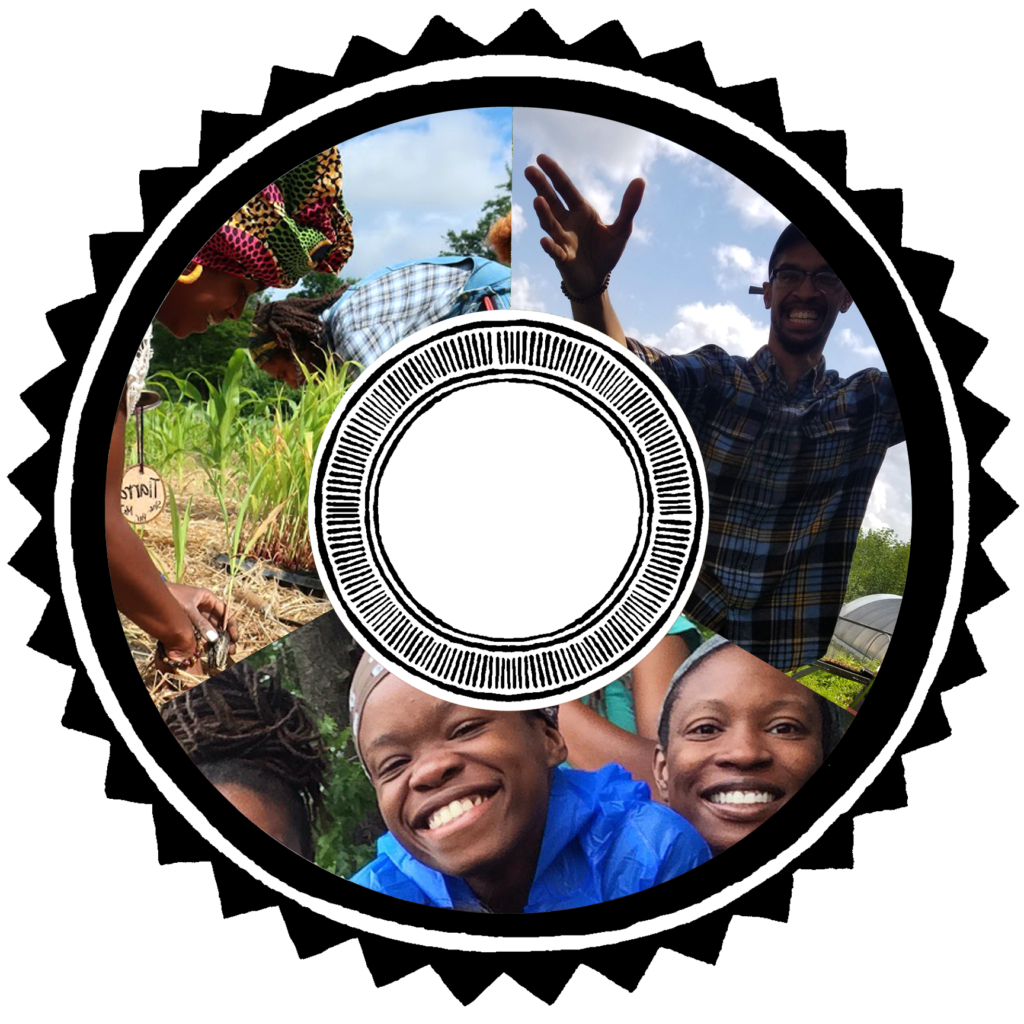
Seed community food SOVEREIGNTY
What We Do
We use Afro-indigenous agroforestry, silvopasture, wildcrafting, polyculture, and spiritual farming practices to regenerate 80 acres of mountainside land, producing fruits, plant medicine, pasture-raised livestock, honey, mushrooms, vegetables, and preserves for community provisioning, with the majority of the harvest provided to people living under food apartheid and targeted by state violence. Our ancestral farming practices build topsoil, sequester soil carbon, and increase biodiversity. The buildings on the farm are hand-constructed, using local wood, adobe, straw bales, solar heat, and reclaimed materials.
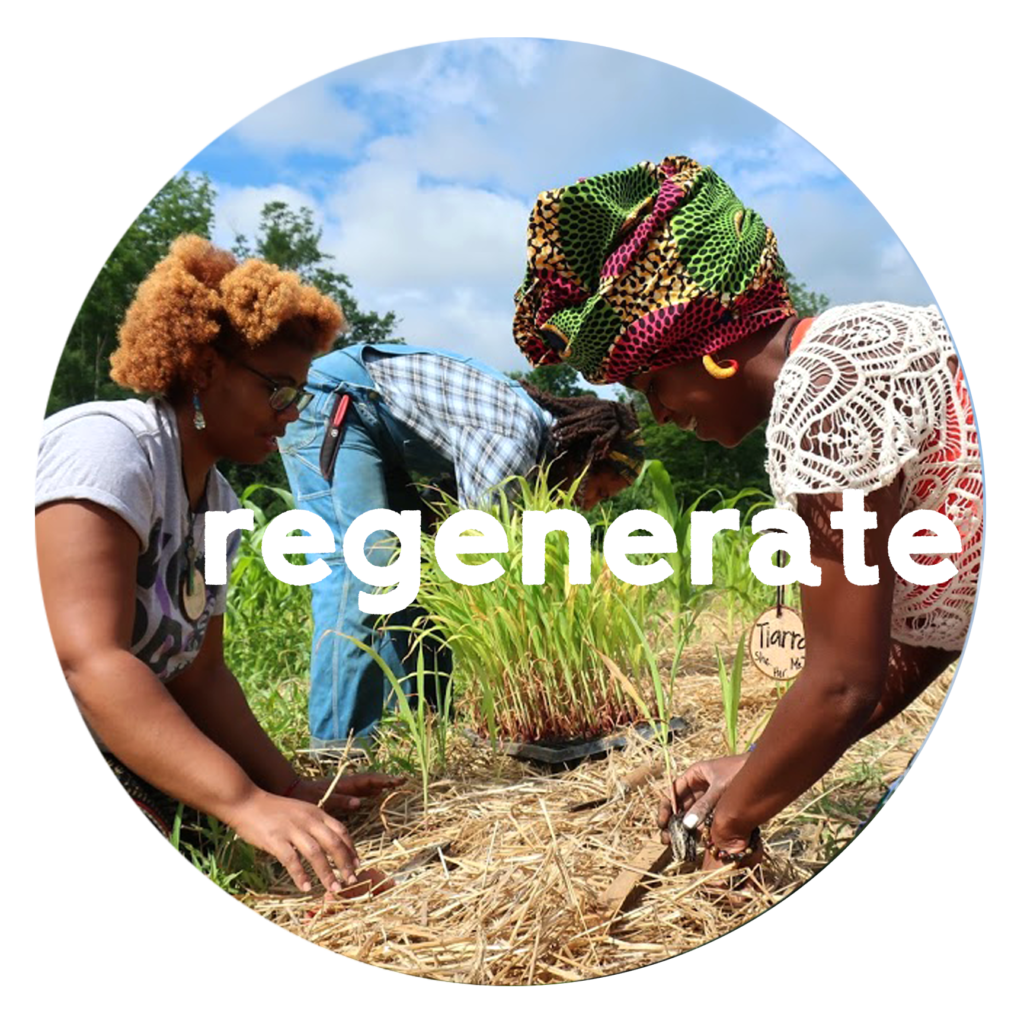
Through our “Afro-Indigenous Farming” immersion and workshops we annually equip hundreds of adults and youth with the land-based skills needed to reclaim leadership as farmers and food justice organizers in their communities, to heal their relationship with earth, and to imagine bolder futures. Using land as a tool to heal from racial trauma, we work to reverse the dangerously low percentage of farms being owned and operated by people of color and increase the leadership of people of color in the food justice movement. Through our Fellowship Program, graduates receive ongoing support to access resources, land, funding, mentorship, and platform.
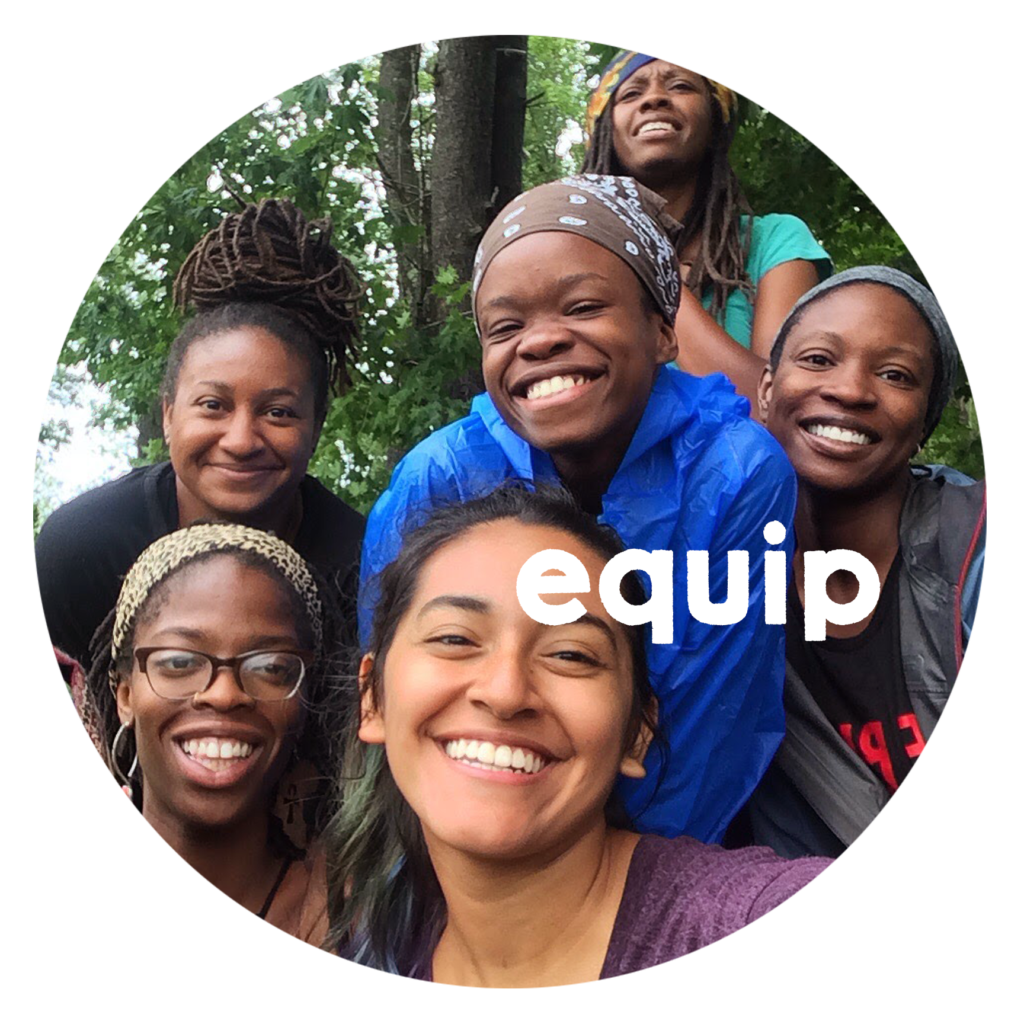
We are mobilizing the public to create a racially just food system. We collaborate with regional, national, and international food sovereignty coalitions to advance reparations, establish action platforms, and work on campaigns for farmer survival and dignity. Each year, we inspire thousands of community members through speaking at conferences, publishing articles/book chapters, and facilitating workshops for activists to share tangible methods for dismantling racism in the food system and increasing community food sovereignty.
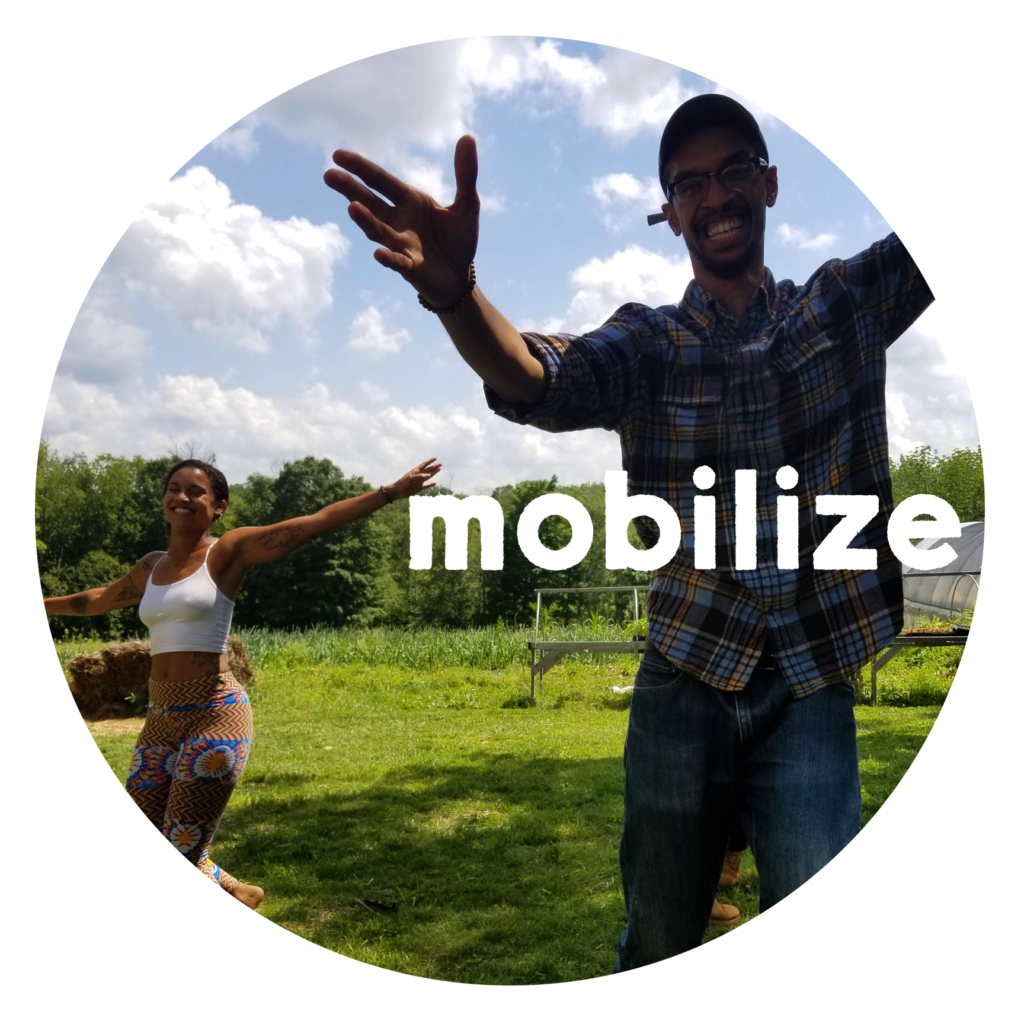
We uplift radical community care. In line with our work to advance healing justice and liberation in the wider community, we commit to an internal team culture that uplifts compassionate communication, ample rest, distributed leadership, fair compensation, and investment in personal and professional development as well as adequate infrastructure to support our team and community’s well being.
2023 STRATEGIC GOALS
FARM ECOSYSTEM:
– Maintain soil organic matter at an average of ≥10% for carbon capture.
– Maintain perennial cover at 75% land area, including additional shrub and native flower plantings in the east field and lowbush blueberry field.
– Install 1-2 additional high tunnels for expanded annual crop capacity.
– Improve ecological pest and weed management through integration of a farm dog, improved fencing, and mulching.
SOLIDARITY SHARES:
– “Solidarity share” at least $25K of naturally-grown farm products through weekly doorstep delivery to households and BIPOC-centered organizations surviving food apartheid, reaching 100+ individuals.
– 80% of Solidarity Share members report positive impacts on their health and household economies.
– Hone the crop plan to diversify weekly offerings and give larger shares to families with higher needs.
– Distribute perishable value-add products through institutional “Solidarity Share” partnerships.
FARM-TO-TABLE:
– Provide 60% SFF farm-fresh ingredients for 1300+ culturally rich meals served to farmer trainees.
– Develop a SFF cookbook with northeast adapted heritage recipes.
– Distribute 1200+ units of herbal medicine and preserves through a replicable microenterprise.
– Highlight educational mission of value-add program through DIY kits and bulk herbs.
INFRASTRUCTURE:
– Increase the efficiency, safety, and quality of life of staff and participants by completing the design-build process for the Program Center, Abode, and Lodge renovations.
– Develop multilingual signage, building manuals, and safety and security plans to improve communications and campus usability.
– Improve landscaping through accessible pathways, native species plantings, and tree safety management.

FARMER TRAINING:
– Facilitate five multi-day intensive immersions – including FIRE (Farming in Relationship with Earth), Farm-to-Table, Wilderness Skills, and Plant Medicine/Botanical trainings, reaching 100+ rising BIPOC farmers and land stewards.
– Train 300+ rising BIPOC farmers and land stewards through 4 daylong in-person and 4 online workshops (3D) and associated instructional videos (LOL) – topics aligning to the stated learning goals including carpentry, soil profiles, garlic planting, and irrigation.
– At least 50% of graduates go on to work as growers, rural land stewards, and/or food system changemakers.
SOUL FIRE IN THE CITY:
– Build 10 new urban gardens and support 50 built previously with supports including crop planning, seedling deliveries, technical assistance, and educational workshops.
– Deepen relationships with returning gardeners by adding trellis, vertical gardening, and polyculture services.
– Host two outdoor SFitC events in the 518, and invite gardeners to other SFF programs.
– The majority of participants report a joyful and successful experience harvesting produce from their gardens and increased food access.
COMMUNITY FARM EVENTS:
– Inspire 600+ local and regional community members to connect to the land, respect farmers, and advocate for food justice through 16+ work and learn days and 6+ farm tours.
– Facilitate on-farm youth food and land justice programs for 150+ local and regional BIPOC youth.
– Foster joyful connection with land and community for 400+ participants in our SOULstice and Equilibrium festivals.
– 75% of those visiting the farm report taking subsequent action to heal the food system.
FELLOWSHIP & ALUMNI SERVICES:
– Support 21 existing and 10 new BIPOC beginning farmers in the 18-month “Braiding Seeds Fellowship,” providing a $50K stipend, 1:1 mentorship, land finding services, media promotion, business planning, and networking opportunities to support their farms. (detail here)
– Additionally, provide technical assistance and referrals to 100+ alumni and community partners.
– Engage 30+ alumni as members of our speakers collective.
– Regrant $60K+ to alumni and fellowship networks.

COALITIONS:
– Collaborate regionally, nationally, and internationally with frontlines BIPOC-led coalitions (HEAL, NBFJA, Black Farmers NE Ecosystem, Stockbridge Munsee Mohican Nation) on campaigns to support farmworkers, rematriate land for indigenous people, advance reparations for Black farmers, and regenerate ecosystems.
PUBLICATIONS & MEDIA:
– In collaboration with our “ecosystem” of sibling organizations, continue to author and revise a nationally-recognized reference library of guides, policy platform, and manuals for food sovereignty, including a new TA directory.
– Reach 50,000+ people through publications, media interviews, Ask a Sista Farmer live show, Love Notes blog, and other virtual forums. Develop a Black Earth Wisdom virtual keynote.
– Enhance social media impact through metrics development, auditing, and calendaring.
– Publish a new book Black Earth Wisdom with a target reach of 50K and complete the manuscript for Soul Fire Farm’s cookbook.
UPROOTING RACISM & PUBLIC SPEAKING:
– Catalyze the transfer of resources and power to BIPOC Farmers through powerful storytelling to 8,000 attendees of public speaking events, with a focus on sharing our platform among staff, alumni, and partners.
– Catalyze anti-racist food systems change through deft facilitation of the asynchronous Uprooting Racism in the Food System (URFS 101), and the action planning URFS 201, reaching 1000+ participants.
– At least 75% of registered participants report concrete actions toward food justice and land sovereignty as a result of what they learned.

WORK CULTURE, GOALS & POLICIES CULTURE:
– Clearly articulate our theory of change, vision and values.
– Review and revise organizational policies and related practices so that they remain timely, just, relevant and grounded in our values.
– Support strong staff relations and staff confidence in our ability to successfully attain organizational goals with joy given anticipated staff changes.
– Build in redundancy of essential duties.
– Support successful staff adjustment to anticipated shifts in team composition.
– Support all positions to create updated How To Guides.
– Select QSEHRA administrative software that best meets our needs.
FINANCE & ADMINISTRATION:
– Improve stewardship of finance by program area, e.g., profits and loss by program, at least annual review.
– Transition to payroll system that handles multi-state payroll, benefits tracking, 1099s and W-2s.
– Improve our donor retention and donor acknowledgment strategies.
– Incorporate a process for assessment and reallocation of our finances in Q3.
– Onboard financial management firm.
– Keep our Bloomerang database clean and formatting consistent.
– Improve clarity of team roles and responsibilities.
– Use our Bloomerang database to support volunteer and alumni tracking and communications.
– Organize our Love@ google drive, with confidential files moved to appropriate drives.
